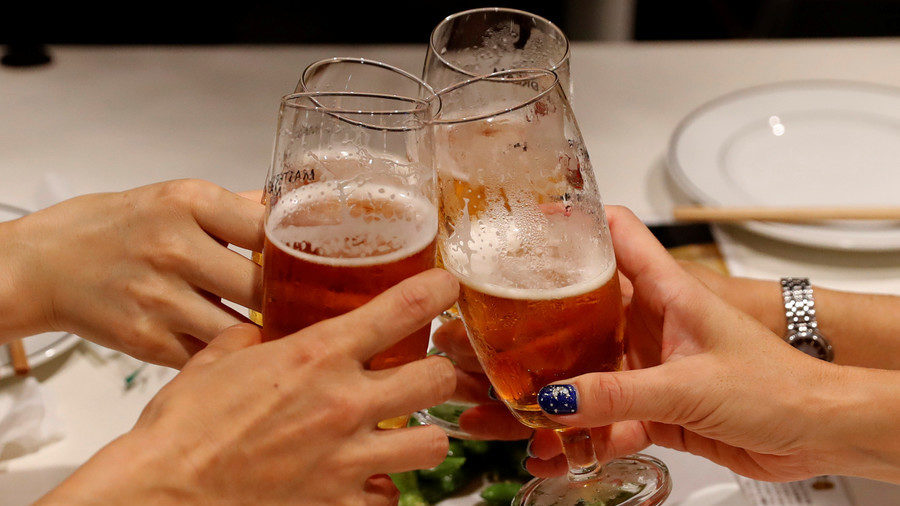Forskere ved MRC Laboratory of Molecular Biology i Cambridge gav fortyndet alkohol (ethanol) til mus. Derefter anvendte de kromosomanalyse og DNA sekvensering til at studere den genetiske skade fra et skadeligt kemisk stof (kendt som ethanal), der dannes, når kroppen nedbryder alkohol.
Videnskabsfolkene opdagede, at ethanal kan bryde og skade DNA'et inden i blodets stamceller, idet de leder til omgrupperede kromosomer såvel som permanente ændringer i DNA-sekvenserne ind i disse celler.
Forskerne understreger vigtigheden af at forstå DNA-koden inden i stamcellerne, idet de citerer én helt enkel grund: når sunde stamceller ødelægges, kan de give anledning til kræft. Deres fund viser hvordan det at drikke alkohol øger risikoen for at udvikle syv typer kræft, herunder de mest almindelige typer, kræft i bryst og mave.
Kommentar: Delvist oversat af Sott.net fra Study finds alcohol damages DNA of stem cells, enhancing the risk of cancer
"Some cancers develop due to DNA damage in stem cells. While some damage occurs by chance, our findings suggest that drinking alcohol can increase the risk of this damage," Professor Ketan Patel, the lead author of the study and scientist at the MRC Laboratory of Molecular Biology, said in a press-release.
The study also closely inspected the way our body tries to protect itself against damage caused by alcohol. The first line of defense is a family of enzymes called aldehyde dehydrogenases (ALDH), researchers said. These enzymes break down harmful acetaldehyde into acetate, which our cells can use as a source of energy. The problem is, millions of people, especially those from South East Asia, either lack these enzymes or carry faulty versions of them. As a result, while they drink, acetaldehyde builds up, causing a flushed complexion along with as a feeling of discomfort.
In the British scientists' study, when mice lacking the critical ALDH enzyme (ALDH2) were given alcohol, it resulted in four times as much DNA damage in their cells compared with mice with the fully-functioning enzyme.
Cells also have a second line of defense in a variety of DNA repair systems. Although most of the time they reverse different types of DNA damage, some people carry mutations so their cells aren't capable of carrying out any such 'repair work.'
"Our study highlights that not being able to process alcohol effectively can lead to an even higher risk of alcohol-related DNA damage and therefore certain cancers," Professor Patel noted. "But it's important to remember that alcohol clearance and DNA repair systems are not perfect and alcohol can still cause cancer in different ways, even in people whose defense mechanisms are intact," he concluded.
Professor Linda Bauld, Cancer Research UK's expert on cancer prevention, added that this "thought-provoking research," published in the journal Nature on Wednesday, highlights the"damage alcohol can do to our cells, costing some people more than just a hangover."
"We know that alcohol contributes to over 12,000 cancer cases in the UK each year, so it's a good idea to think about cutting down on the amount you drink," she said.
The International Agency for Research on Cancer (IARC), a World Health Organization body, has classified alcohol as a Group 1 carcinogen, along with tobacco, asbestos and formaldehyde.
Scientists from Cancer Research UK warned in 2016 that alcohol would cause around 135,000 cancer deaths over the next two decades, and that by 2035, the UK could see 7,097 cancer deaths linked to drinking every year.
According to the American Cancer Society, alcohol use has been correlated with cancers of the mouth, throat, voice box, and esophagus.
Alcohol use accounted for up to 3.7 percent of all cancer deaths in the US, according to a study published in the American Journal of Public Health in 2013.




Læserkommentarer
dig vores Nyhedsbrev